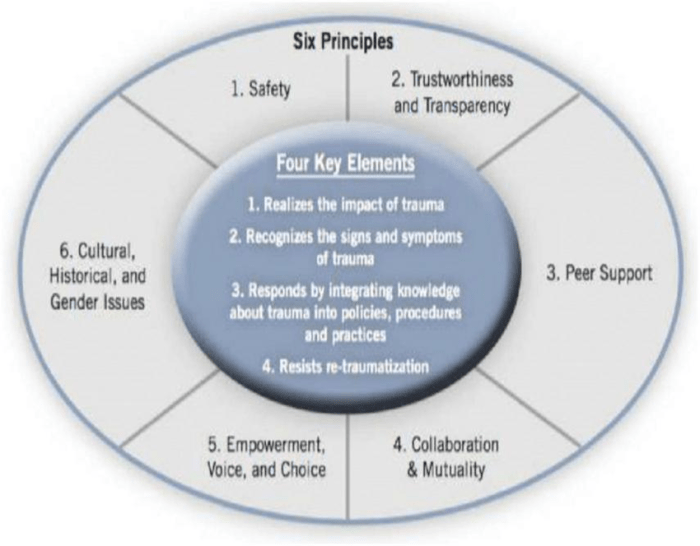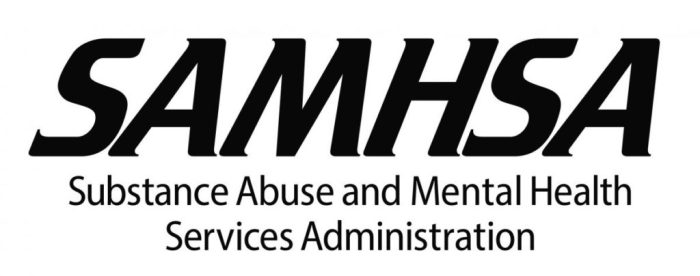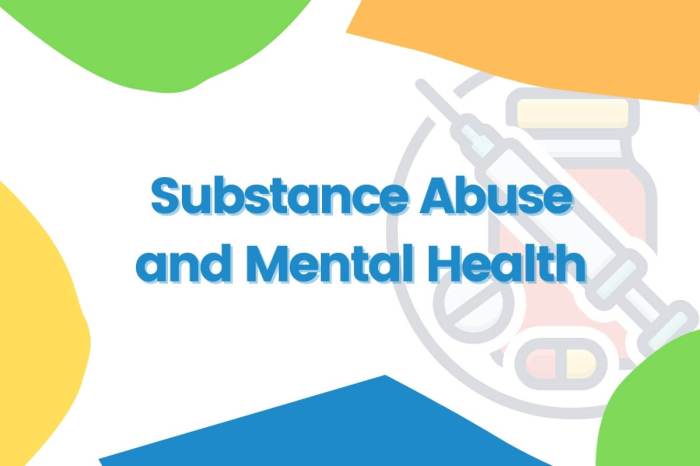SAMHSA, the Substance Abuse and Mental Health Services Administration, stands as a beacon of hope in the realm of mental health and substance abuse. Its unwavering mission to provide comprehensive services, conduct groundbreaking research, and advocate for supportive policies has transformed the lives of countless individuals and communities.
With a deep understanding of the complexities surrounding mental health and substance abuse, SAMHSA has developed a wide array of programs and services tailored to meet the diverse needs of the population. These programs empower individuals to reclaim their well-being, rebuild their lives, and contribute meaningfully to society.
SAMHSA Overview
The Substance Abuse and Mental Health Services Administration (SAMHSA) is a federal agency within the U.S. Department of Health and Human Services. SAMHSA’s mission is to reduce the impact of substance abuse and mental illness on the nation.
SAMHSA’s vision is a society in which everyone has the opportunity to live a healthy life, free from the harmful effects of substance abuse and mental illness.
SAMHSA’s goals are to:
- Reduce the incidence and prevalence of substance abuse and mental illness.
- Improve the quality and effectiveness of prevention, treatment, and recovery services.
- Increase access to affordable, high-quality substance abuse and mental health services.
- Reduce the stigma associated with substance abuse and mental illness.
SAMHSA Programs and Services

SAMHSA offers a wide range of programs and services to help people with substance abuse and mental health disorders. These programs include:
- Prevention programs to help people avoid substance abuse and mental health problems.
- Treatment programs to help people recover from substance abuse and mental health disorders.
- Recovery support services to help people stay sober and healthy after completing treatment.
- Research programs to study the causes and treatment of substance abuse and mental health disorders.
SAMHSA’s programs and services are available to people of all ages, races, and ethnicities. They are also available to people with disabilities and people who are homeless.
SAMHSA Research and Data

SAMHSA conducts and supports research on the causes and treatment of substance abuse and mental health disorders. This research helps SAMHSA to develop more effective prevention and treatment programs.
SAMHSA also collects data on the prevalence and impact of substance abuse and mental health disorders. This data helps SAMHSA to track progress in reducing the impact of these disorders.
Some key findings from recent SAMHSA research include:
- In 2019, an estimated 20.4 million Americans aged 12 or older had a substance use disorder.
- In 2020, an estimated 52.9 million Americans aged 18 or older had a mental illness.
- Substance abuse and mental health disorders can have a significant impact on health, well-being, and productivity.
SAMHSA Collaborations and Partnerships

SAMHSA collaborates with a wide range of partners to help people with substance abuse and mental health disorders. These partners include:
- State and local governments
- Nonprofit organizations
- Healthcare providers
- Law enforcement
- Community groups
SAMHSA’s collaborations and partnerships help to ensure that people with substance abuse and mental health disorders have access to the services they need.
SAMHSA Advocacy and Policy
SAMHSA advocates for policies that support mental health and substance abuse services. SAMHSA works with Congress, the White House, and other federal agencies to develop and implement policies that will help people with substance abuse and mental health disorders.
Some of SAMHSA’s recent advocacy efforts include:
- Supporting the Mental Health Parity and Addiction Equity Act of 2008, which requires health insurance plans to cover mental health and substance abuse services on par with other medical services.
- Working with the Obama administration to develop the National Drug Control Strategy, which focuses on reducing drug use and its consequences.
- Supporting the Trump administration’s efforts to address the opioid crisis.
SAMHSA Resources and Tools
SAMHSA offers a wide range of resources and tools to help people with substance abuse and mental health disorders. These resources include:
- A national helpline (1-800-662-HELP) that provides information and referrals to treatment programs.
- A website (www.samhsa.gov) that provides information on substance abuse and mental health disorders, treatment options, and resources.
- A variety of publications and materials on substance abuse and mental health disorders.
SAMHSA’s resources and tools can help people with substance abuse and mental health disorders get the help they need.
End of Discussion
SAMHSA’s unwavering commitment to collaboration, research, and advocacy has positioned it as a driving force in shaping policies that prioritize mental health and substance abuse services. Its unwavering dedication to improving the lives of those affected by these challenges serves as a testament to its unwavering commitment to building a healthier, more resilient society for all.
Clarifying Questions
What is SAMHSA’s primary focus?
SAMHSA’s primary focus is to improve the lives of individuals and families affected by mental health and substance abuse disorders.
What types of services does SAMHSA offer?
SAMHSA offers a wide range of services, including prevention, treatment, recovery support, and research.
How can I access SAMHSA’s services?
You can access SAMHSA’s services by visiting their website or calling their helpline at 1-800-662-HELP (4357).